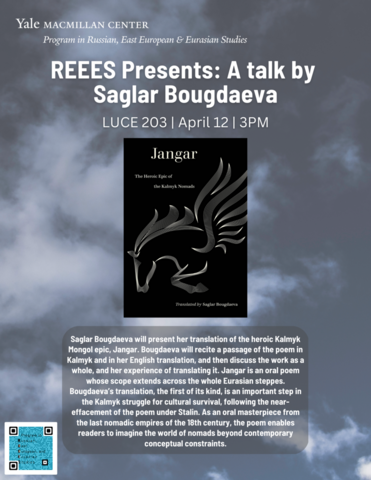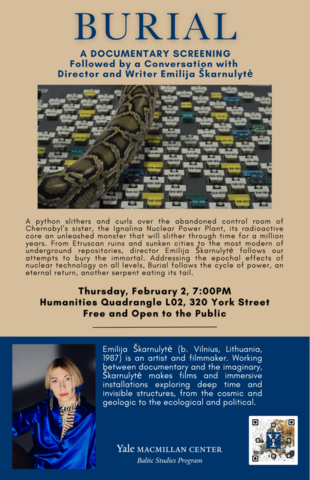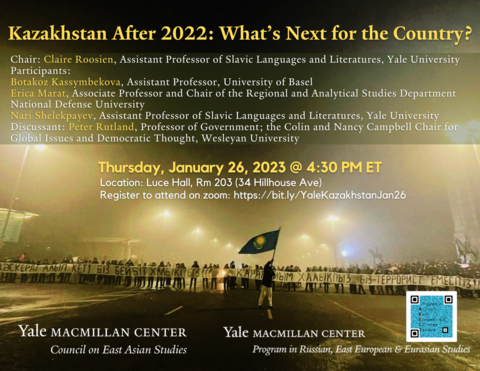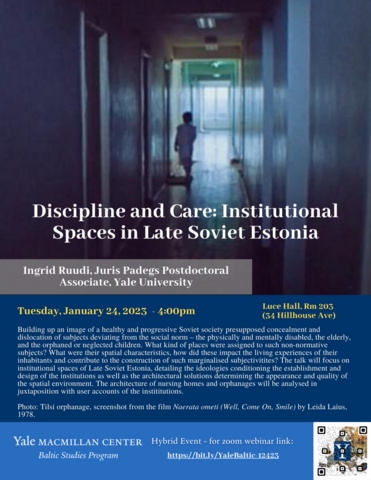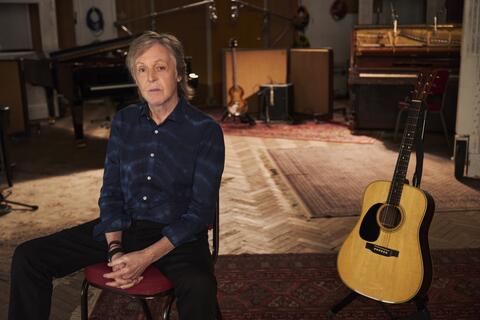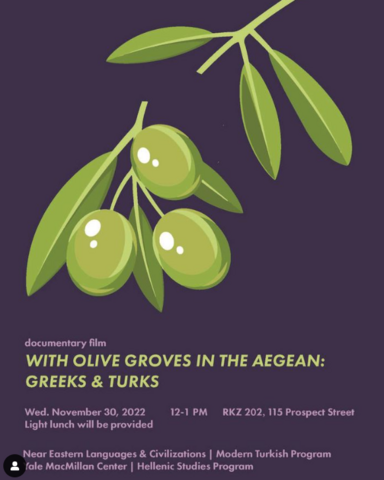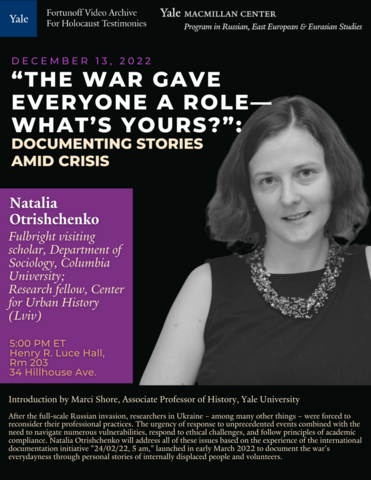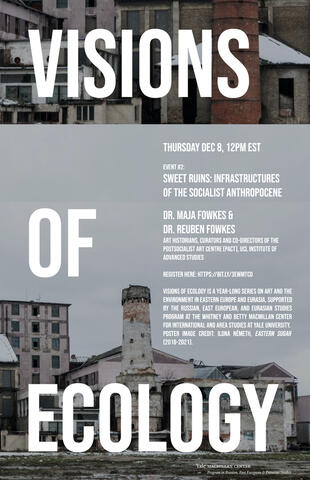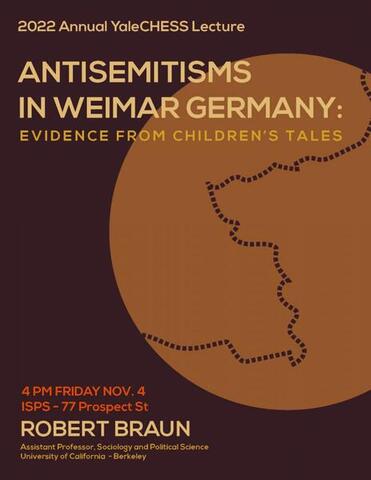Jangar: The Heroic Epic of the Kalmyk Nomads
“Jangar: The Heroic Epic of the Kalmyk Nomads” by Saglar Bougdaeva, Independent Researcher, MPH 2005 & Ph.D. 2010 Yale University
Sponsored by the Russian, East European, and Eurasian Studies Program of the Yale MacMillan; the Department of Slavic Languages and Literatures; and the Department of Comparative Literature.
Saglar Bougdaeva will present her translation of the heroic Kalmyk Mongol epic, Jangar. Bougdaeva will recite a passage of the poem in Kalmyk and in her English translation, and then discuss the work as a whole, and her experience of translating it. Jangar is an oral poem whose scope extends across the whole Eurasian steppes, containing terrifying demons, animal guides, vast herds, prodigious drinking bouts, and mighty feats—some of them performed by a toddler capable of uprooting trees. As performed across the Eurasian steppe, the songs of Jangar recount the fate of the Oirad-speaking nomads whose descendants live in Mongolia, Russia, and China. Bougdaeva’s translation, the first of its kind, is an important step in the Kalmyk struggle for cultural survival, following the near-effacement of the poem under Stalin. As an oral masterpiece from the last nomadic empires of the 18th century, the poem enables readers to imagine the world of nomads beyond contemporary conceptual constraints, as we travel through a landscape of wells, teahouses, postal stations, and the jade gates of sophisticated nomad imperial capitals.
Saglar (Saga) Bougdaeva was born and raised in Kalmykia. Central to Bougdaeva’s work as a scholar of Eurasian studies is a commitment to identifying and preserving the nomadic oral and written heritage of the Great Eurasian Steppe. Before receiving a PhD in Sociology from Yale University, Bougdaeva studied Mongolian-Tibetan-Mandarin linguistics at Saint Petersburg State University.


